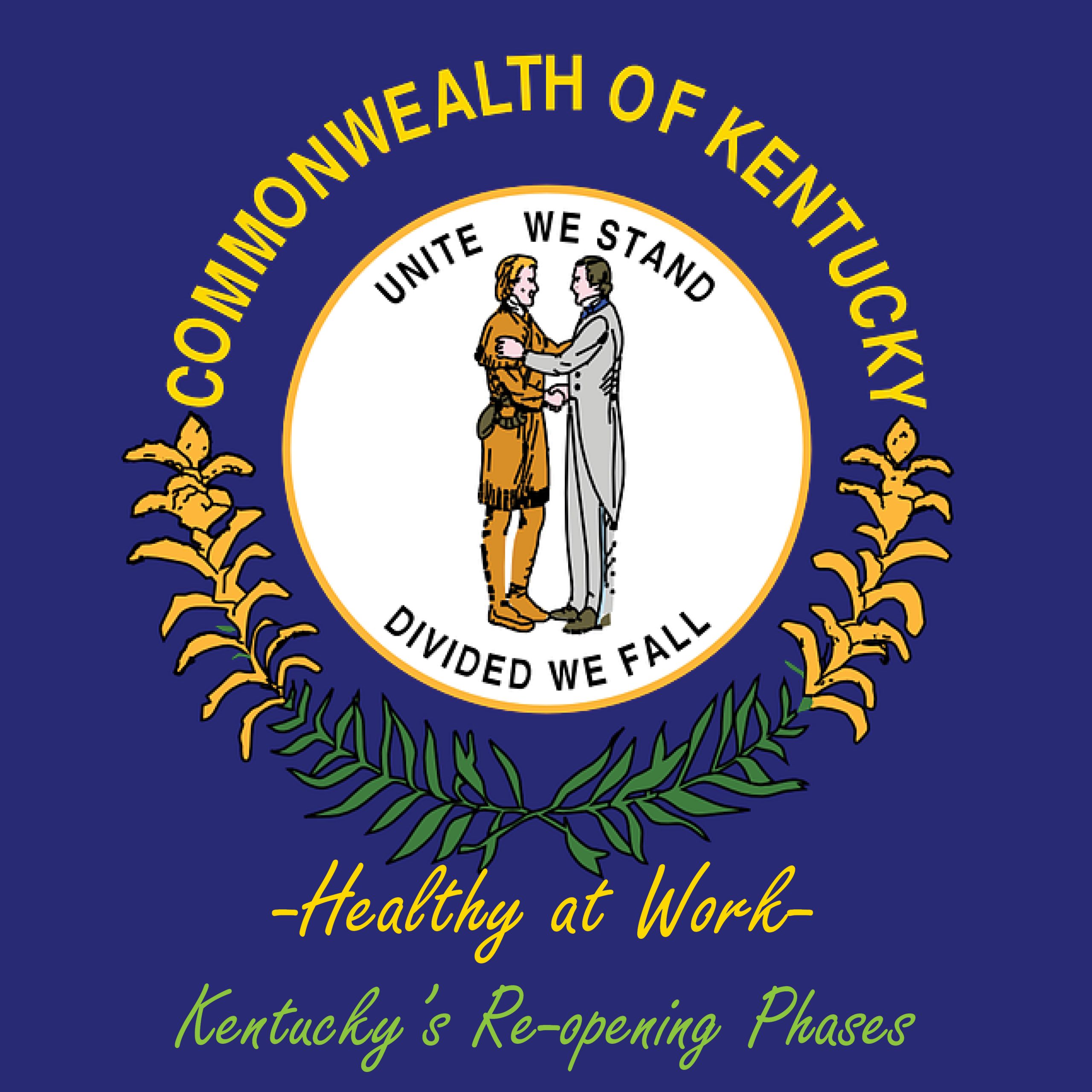Healthy at Work - Kentucky's Re-opening Phases

Today, the following industries are permitted to reopen in Kentucky:
- Construction
- Horse Racing (no fans)
- Manufacturing & Distribution
- Office-Based Businesses (50% or less of office only)
- Pet Grooming / Boarding
- Photography
- Vehicle or Vessel Dealerships
Businesses that are reopening also must comply with Minimum Requirements for All Entities as well as industry-specific requirements. These requirements were made mandatory pursuant to an Order dated May 11, 2020 issued by the Cabinet for Health and Family Services Office of the Secretary. Effective May 11, these requirements also apply to businesses that remained open because they were deemed life-sustaining (i.e., essential).
The new requirements cover a range of precautions and social distancing requirements. They also include new guidelines and requirements related to employee temperature taking and health screening. They must be reviewed carefully as they include both non-mandatory and mandatory guidelines.
Minimum Requirements for All Entities
- Continue telework where possible: “employees who are able to perform their job duties via telework must continue to telework.”
- Phased return to work: businesses are “encouraged” to phase employees back to work which include “generous telework, sick leave, and family leave policies.”
- Enforce social distancing: businesses “must ensure, to the greatest extent practicable” that employees remain a minimum of six (6) feet away from co-workers and visitors “unless closer interaction is absolutely required to perform their job duties (e.g., health care examinations).
- Limit face-to-face meetings: businesses “must ensure” employees “minimize face-to-face contact” with co-workers and customers “to the greatest extent practicable.”
- Universal masks and other necessary PPE:
-
- Employees: businesses must “ensure, the greatest extent practicable” that employees, volunteers, and contractors, wear a cloth mask unless one of the following exceptions is apply:
-
-
- doing so would create a “serious health or safety hazard”;
- that person is working “alone in an enclosed space”; or
- working “alone in an area with more than six (6) feet social distancing
-
-
- Customers/Visitors: businesses “should encourage” customers to wear masks. The Order specifically allows businesses to refuse to serve any customer that refuses to wear a mask.
-
- Gloves: businesses “must ensure” that employees that have job duties that require touching high-touch surfaces “wear gloves that are regularly replaced.”
- Hand Sanitizer and Hand Washing: businesses “must supply adequate hand sanitizer (60% alcohol content or higher)” for both employees and customers and make sure it is placed in high-traffic and high-touch areas. Businesses must also “encourage” handwashing.
- Restrict Common Areas: businesses “must, to the greatest extent practicable,” restrict all common areas to discourage congregating and promote social distancing. Common areas include lobbies, waiting rooms, break rooms, smoking areas, lunch rooms, and concession area.
- Proper Sanitation: businesses must “sanitize frequently touched surfaces and areas in accordance with CDC guidelines.”
- If an employee has COVID-19 symptoms or tests positive for COVID-19:
-
- “immediately restrict access to contaminated areas”
-
- post signage
-
- “adequately clean impacted areas”
-
- “any contaminated area should be off-limits to all but essential personnel for a minimum of 24 hours.”
-
- businesses “must ensure” that an employee with a fever and/or COVID-19 symptoms is tested within 36 hours.
-
- “should be directed” to a doctor to be tested and “instructed to quarantine at home as soon as any illness is detected.”
-
- must assist public health officials if an employee tests positive or “becomes exposed to COVID-19.” The order also includes specific information a business must be prepared to provide:
- Onsite temperature/health checks: employers must require employees to undergo daily temperature and health checks. The health checks may be self-administered or performed at work. If self-administered they must be reported to the employer on a daily basis. The order also requires a specific set of questions. The Order also includes additional guidance for administering on-site temperature screening and requirements as to how businesses must respond when an employee answers “yes” to health and temperature screenings.
- Testing Plan: businesses must have a plan for handling an employee that reports COVID-19 symptoms or tests positive. This plan must include:
-
- ensuring that the employee is tested within 36 hours
-
- employees must be trained in isolating individuals with symptoms or confirmed at work
-
- how to report a suspected case; and
-
- if an employee tests positive that business must notify the local health department.
- Special Accommodations: businesses “must, to the greatest extent practicable”, make special accommodations for high risk employees.
- Healthy At Work Officer: businesses must designate a Healthy at Work Officer that is responsible for compliance. Businesses must also provide a method for employees to communicate to concerns or suggestions to management or the Healthy at Work Officer.
- Education and Training: businesses must provide training regarding the guidelines.
The industry specific requirements can be found here.
While businesses are anxious to reopen and return to business as usual, the new operating requirements are creating a complex set of requirements and guidelines. The Graydon COVID-19 Task Force will continue to monitor COVID-19 orders and guidance so stay safe and know that Graydon is here to help you navigate the COVID-19 crisis. We can help with general advice, policies, forms or whatever your business needs. Our goal is to help you sleep a little better at night
Media Contact
- office 513.629.2896
